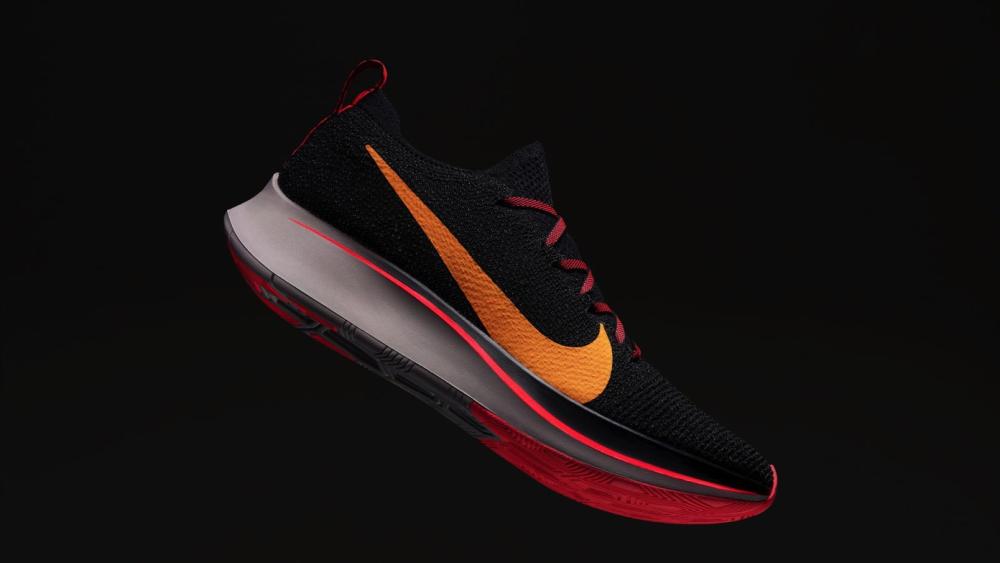World records are tumbling.
Are athletes dedicating themselves to their training more, are they eating better, are they utilizing innovative new techniques that have shaved seconds off their best times?
Possibly, but there is an elephant in the room.
When Nike announced the release of their Vaporfly and Alphafly running shoes, they proclaimed the technology they’ve used as a ‘game-changer’. And they weren’t kidding…
Anyone who has seen either shoe up close and personal will be slightly taken aback. They look like something an astronaut might wear, with a heel stack of cushioning measuring a whopping 40mm. But there is method in the madness, as the speeds recorded in many disciplines in the past couple of years testify.
It all started with Eliud Kipchoge in 2019. He wore a prototype of the Vaporfly shoe and ran a sub-two-hour marathon – the first man in history to do so, although it wasn’t categorized as an official world record due to the ‘artificial’ conditions in Austria where he achieved the feat.
The Kenyan then went on to win the London Marathon in 2019 in the second-fastest time in history.
You just had to be there.
? @EliudKipchoge #LondonMarathon pic.twitter.com/Ije5TSkUaL
— Virgin Money London Marathon (@LondonMarathon) March 2, 2021
Since then, a catalogue of world-beating times have been recorded. Such has been the improvement that World Athletics have had to rewrite their rulebook with regards to the use of air cushioning and carbon plates – two of the innovations that Nike have rolled out. Now, only 40mm of sole padding can be incorporated into a shoe’s designs, and the new ZoomX Vaporfly conforms to those regulations.
With the Olympic Games set to go ahead in Tokyo this summer, more world records will surely tumble on the biggest stage of them all. This is something that will interest bettors in particular, who will utilize the athletics odds supplied by trusted American betting sites. The delay of the Olympics is actually nicely timed from that perspective, with more and more states witnessing a rise in popularity of sports betting, so moneyline wagers are now being placed across America.
And you can bet your bottom dollar this summer that savvy bettors will be keeping an eye out for athletes wearing Nike’s game-changing new designs.

Material Gains
The naysayers might be thinking ‘well, it’s only a running shoe. How can it make such a difference?’
It’s all in the technology. Aside from the hyperbolic names for the tech, there are clear gains to be made in wearing Nike’s latest releases.
They utilize Pebax foam in the sole – which Nike have repackaged under the ‘ZoomX’ banner. The material is said to keep strain on the legs and feet to an absolute minimum. To aid that further, the firm has used ‘AirPods’, not the Apple product, it should be added, which enhances the cushioned feel yet further.
With a lighter material used in the fabric of the shoe, and the overall feeling is that those who wear the Vaporfly series are actually more energy-efficient. Nike themselves have claimed that the wearer exerts less energy when compared with other branded shoes, which perhaps explains why long-distance runners have a bit more gas left in the tank to power home in record times.
That’s not just sales patter either. Research has shown that the Vaporfly makes the wearer 4-5% faster than the average running shoe, and even 2-3% faster than the premium products offered by rival brands.
That explains why there has been a huge paradigm shift in elite athletics…
A Whole New World
The rollcall of world record holders ‘assisted’ by Vaporfly and other Nike variants is growing by the month.
Kipchoge had already broken the marathon world record prior to his heroics in Vienna, setting a mark of 2:01:39 in Berlin – a staggering 78 seconds quicker than the previous best.
Fellow Kenyan Brigid Kosgei then smashed an astonishing 81 seconds from the women’s marathon record in October 2020, before Joshua Cheptegei broke a decade-old mark for the 10k on the road in Valencia – six seconds were shaved off the previous leader.
Spoke to Seb Coe about Elliot Giles breaking his British indoor 800m record. “I’m slowly being expunged from history which is a good thing,” he said. “I’m absolutely delighted for Elliot.” Didn’t appear too concerned about new spike tech, though others are https://t.co/MO031Ul8u4
— Sean Ingle (@seaningle) February 17, 2021
We could go on and on, but will sign off with Ababel Yeshaneh – she broke the half-marathon world record by a mammoth 20 seconds, and Elliot Giles, who, up until this point, had enjoyed a solid if unspectacular career as an 800m runner. In February, he ran the second-fastest indoor time in history – breaking the British record set by Seb Coe which had stood for decades.
Nike’s slogan is Just Do It, and plenty of their athletes certainly have. We suspect more records will tumble at the Olympics and beyond.




